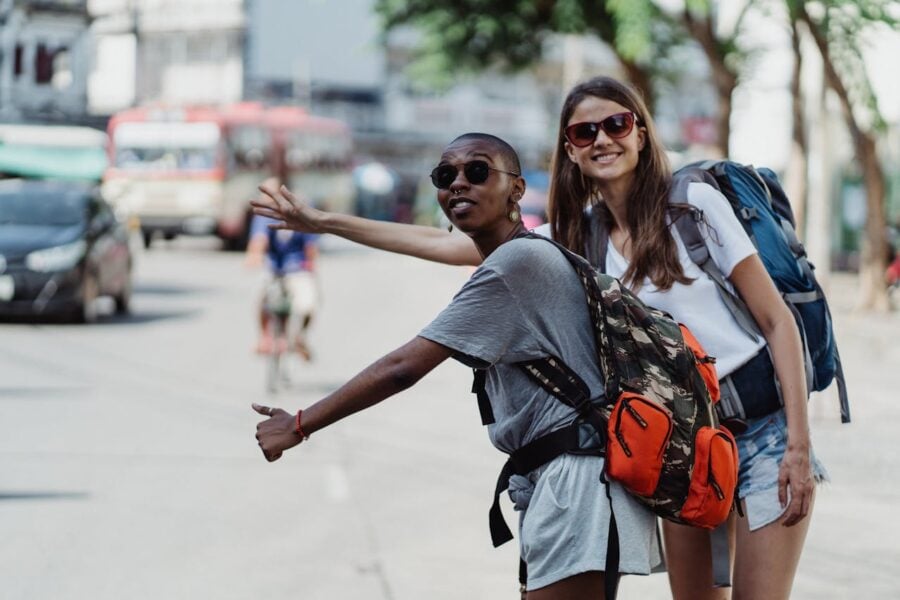Travel isn’t just a temporary break from daily routine – it’s a transformative experience that affects a person for many years after returning home. Moving between cultures, landscapes, and new experiences creates deep internal processes that contribute to personality development, broadening horizons, and shaping a new and richer identity.
How Does Travel Develop Self-Confidence and Mental Resilience?
One of the most significant aspects of travel is the need to deal with unexpected situations. When we’re far from our familiar environment, we’re forced to develop adaptability and problem-solving skills. Lost luggage at the airport, communication difficulties in a foreign language, or finding our way in an unfamiliar place – all of these constitute challenges that require creativity and mental resilience.
Every successful solution to a problem during travel builds within us confidence that we can cope with difficult situations. This experience stays with us even after returning home and amplifies our sense of capability in stressful situations in daily life. People who have traveled extensively report a significant increase in their self-confidence level and a greater ability to make decisions under pressure.
Why Does Exposure to Different Cultures Expand Mental Openness?
The encounter with different cultures is one of the most enriching experiences travel can offer. When we’re exposed to different ways of thinking, new customs, and values different from those we grew up with, a process of mental expansion occurs. We discover that there are many different ways to live, think, and relate to the world.
This exposure not only broadens our horizons but also develops in us tolerance and openness to diversity. When we see how a family in Africa lives happily with much fewer material resources than we have at home, or when we experience the warm community spirit in an Asian village, we begin to understand that happiness and life values don’t necessarily depend on what we thought about them until now.
This process creates mental flexibility that manifests in our daily lives – the ability to understand different viewpoints, be open to new ideas, and accept the different in our society with more understanding and tolerance.
How Do Travel Experiences Enhance Communication and Leadership Skills?
Travel, especially when done in groups or in places where the language is different, naturally develops our communication skills. When we need to explain something through gestures, communicate with someone who speaks a different language, or coordinate activities with travel companions, we develop communicative creativity and the ability to convey messages in various ways.
In group travel, the need for natural leadership often arises. Someone needs to organize, coordinate, make decisions, and lead. This experience develops leadership skills in a practical and living way. People discover skills they didn’t know they had and learn how to manage a group, resolve conflicts, and make collective decisions.
These skills return with us to the workplace and social life, contributing to professional advancement and improving the quality of our interpersonal relationships.
How Does Travel Contribute to Developing Creativity and Mental Flexibility?
The new environments we’re exposed to in travel stimulate our senses in new and refreshing ways. Different landscapes, new sounds, foreign scents, and unfamiliar experiences stimulate the brain to increased creative activity. Our brain is forced to process new and unfamiliar information, which strengthens neuronal connections and encourages creative thinking.
Similarly, the need to solve problems in new and unconventional ways develops mental flexibility in us. When regular solutions don’t work, we’re forced to think outside the box and find new ways to cope. This ability stays with us even after returning home and contributes to creative problem-solving at work and in private life.
What Is the Impact of Travel on Appreciating Time and Life?
One of the less familiar but significant aspects of travel is its impact on our appreciation of time and life. When we’re in a temporary place, without our fixed routine, we begin to appreciate every moment more. Time is perceived differently – not as something that passes without our control, but as a precious resource that we can shape and utilize meaningfully.
This experience shapes a new relationship with time in our daily lives too. We learn to appreciate small moments, be more present, and not take daily life for granted. People who have traveled extensively report that they enjoy simple activities at home more and know better how to use their time meaningfully.
How Do Travels Affect Our Relationship with Ourselves?
The time we spend alone during travel, away from the tensions of home and work, allows us to get to know ourselves anew. Without the social and professional definitions that surround us at home, we can discover new aspects of our personality.
Travel allows us to reconnect with our desires and dreams, without the external influences that dictate how we should be. This time of self-connection contributes to building a more authentic identity and a deeper understanding of what is truly important to us in life.
What Is the Impact of Travel on Professional Career?
The skills developed through travel – flexibility, adaptability, creative problem-solving, communication and leadership skills – are exactly the skills valued in the modern job market. Employers seek employees who know how to cope with changes, work in diverse environments, and find creative solutions to challenges.
Additionally, exposure to different cultures and the ability to communicate with people from diverse backgrounds is becoming increasingly important in the global world. Companies are interested in employees who can work with international clients and understand complex cultural dynamics.
Are You Ready to Invest in a Trip That Will Change Your Life Long-Term?
Our travels are not just beautiful memories or pictures in an album – they are an investment in the person we become. Every trip shapes us in a way that will continue to influence us for many years ahead. The question is not whether we can afford to travel, but whether we can afford not to invest in the personal development that travel offers.


